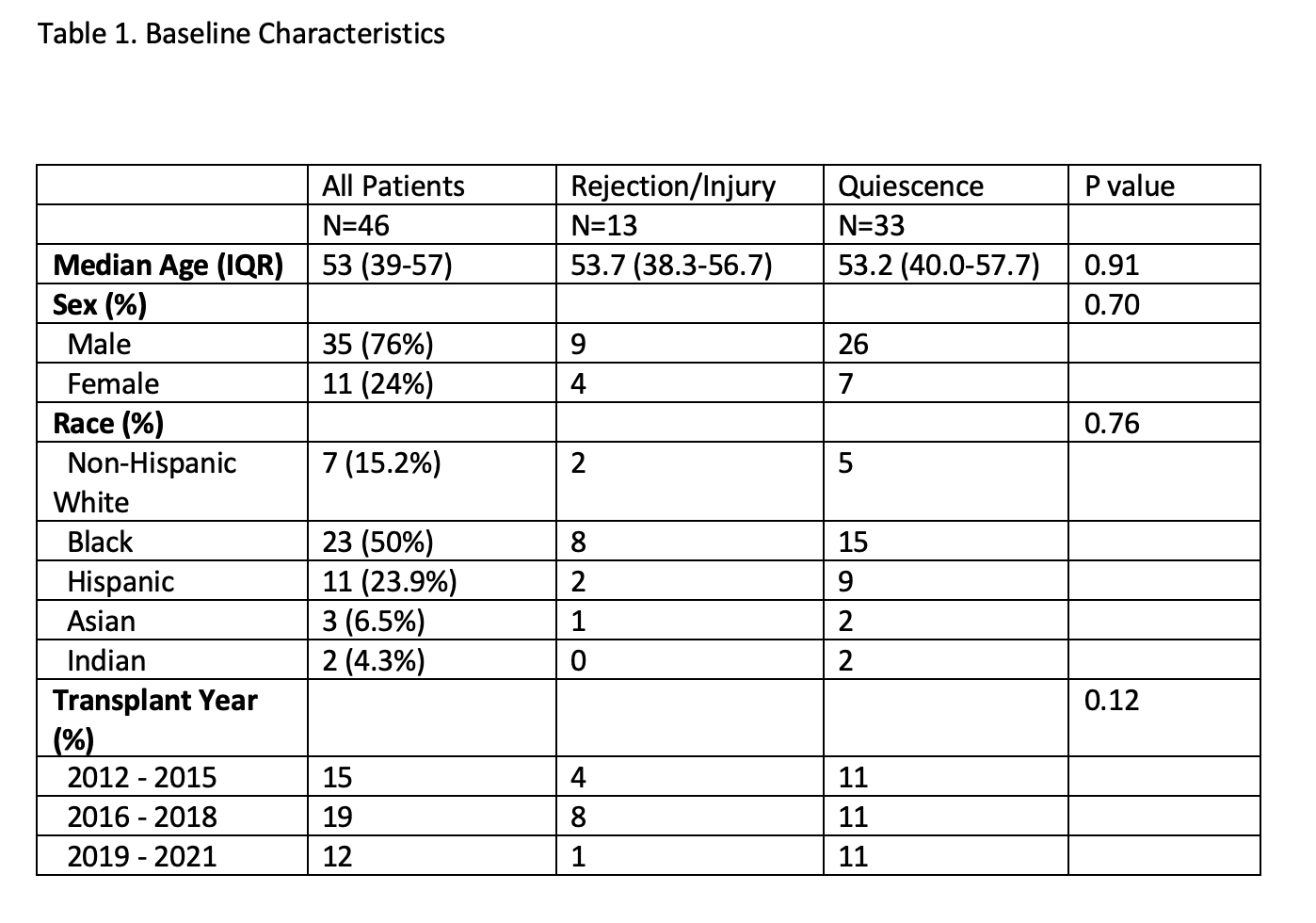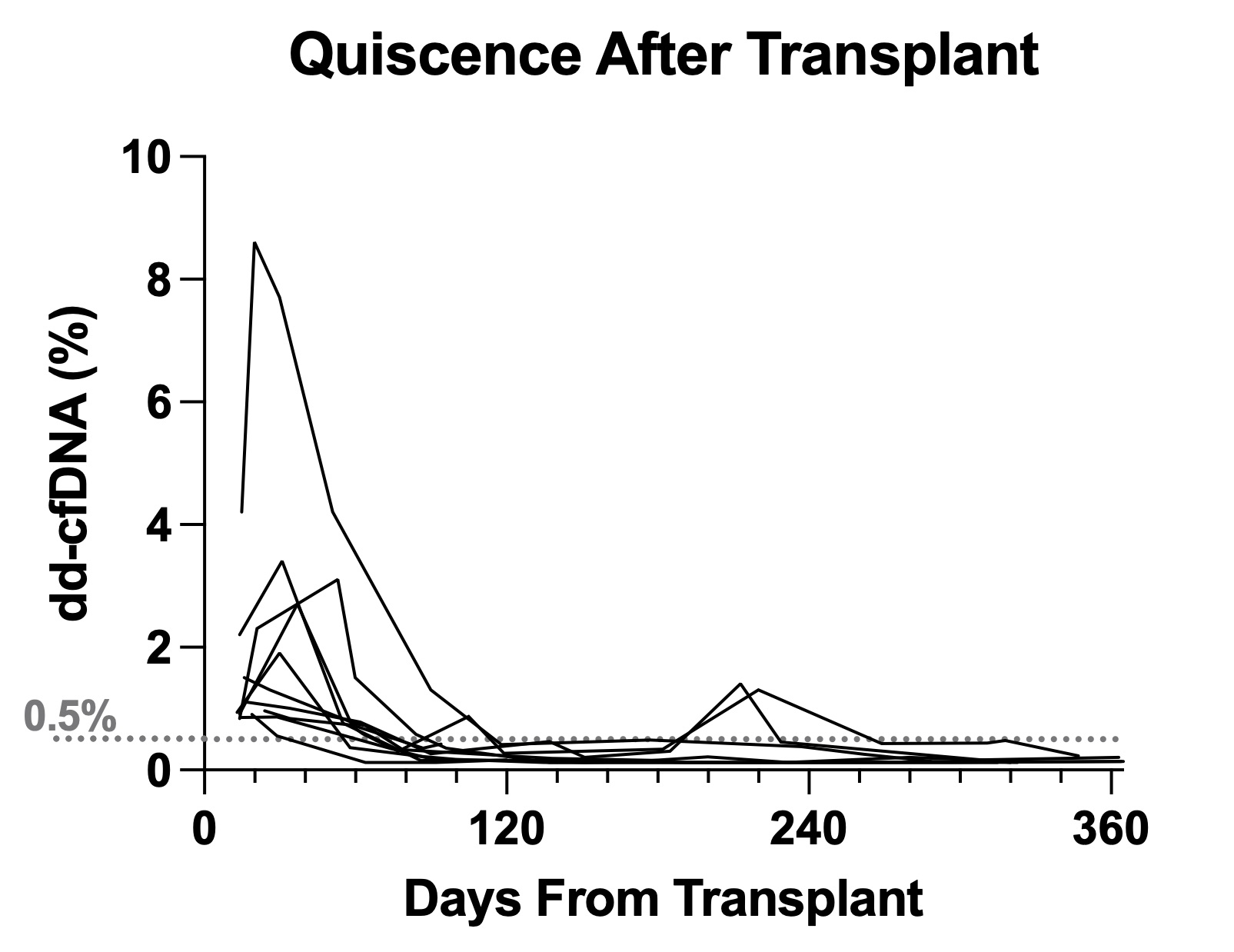Donor-derived cell-free DNA for rejection surveillance in simultaneous pancreas kidney transplantation
Michael Williams1, Mingwei Fei2, Erik Schadde1, Edward Hollinger1, Edie Chan1, Oyedolamu Olaitan1.
1Department of Surgery, Rush University Medical Center, Chicago, IL, United States; 2CareDx, Inc. , Brisbane, CA, United States
Introduction: Allograft biopsy is the gold standard for diagnosing graft rejection following simultaneous pancreas and kidney (SPK) transplant. Intraperitoneal biopsies are technically challenging, and can be burdensome to patients and the healthcare system. Donor-derived cell-free DNA (dd-cfDNA) is well-studied in kidney transplant recipients, however, it has not been evaluated in the SPK population.
Methods: We hypothesized that dd-cfDNA could be utilized for rejection surveillance following SPK transplant. We prospectively collected dd-cfDNA from 46 SPK patients over a 30-month period at a single institution. Dd-cfDNA was obtained two weeks following transplant, monthly for the first year, then every three months for the next two years, and then every 6 months thereafter. Biopsies were obtained for elevated serum lipase/creatinine, or for elevated dd-cfDNA.
Results: 56 patients were included in the analysis (median age 53, 24% female, median follow-up 2 years). Patient demographics can be seen in Figure 1. 423 total dd-cfDNA values were collected during the study period, with median 8 values per patient. Among all patients, median baseline dd-cfDNA value was 0.18% (IQR 0.15% - 0.22%). Figure 2 shows the trends in dd-cfDNA over time for all patients who were transplanted during the study period. 19 biopsies were performed in total, 5 of which confirmed rejection. There were an additional 5 cases where biopsy could not be performed, but rejection was diagnosed clinically based on clinical factors (sustained dd-cfDNA elevations, rising lipase/creatinine, de-novo or rising donor specific antibodies). These 5 patients were treated for rejection with favorable results, including decreases in dd-cfDNA back to baseline. Among patients who did not have rejection, 97% had dd-cfDNA less than 0.5%. Dd-cfDNA may also help differentiate rejection from other graft injury, with median values in rejection 2.25%, injury 0.36%, quiescence 0.18% (p=0.0006). A pertinent example is a patient with an increase in serum lipase to greater than 20 times the normal value. However, her dd-cfDNA was not elevated (0.35%). Percutaneous pancreas graft biopsy revealed acute pancreatitis without evidence of rejection.
Conclusion: Similar to kidneys, dd-cfDNA shows promise for rejection surveillance in SPK transplant recipients.


Study funded by CareDx, Inc.

right-click to download
